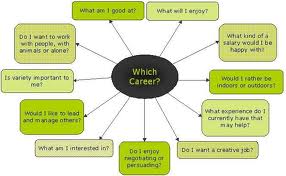Career planning is the first step towards career development and is the responsibility of the individual. The most essential requisites of successful career management is researching, establishing and pursuing career plans at different levels. This must be done along with regular development reviews and enhancements that provide a basis for more successful career management.
Career planning generally comprises of three major phases. They are:
• Early stage from ages 18 to 34
• Middle stage from 35 to 55
• Later stage beyond 55
The early stage career planning:
The early stage is the stepping stone to career development. The decisions taken at this time are critical as they significantly influence the shape that our career will take in future. During the early stage, the career choices are highly influenced by parents, relatives or close friends. It is also the right time to start building your personality by reading personality development books or attending training programs.
Middle stage career planning:
Effectively managing the knowledge and skill related to our chosen profession is the most important financial asset for most of us. However this is easier said than done. Our busy schedules and work pressure hardly leave us with anytime to spare for personality development. Therefore, career development too takes a back seat. This is especially true for those people whose jobs find them working for unpredictable or long hours.
The career planning done at the mid–stage usually reflects the early experiences that one has had with his or her career. This is generally an extension of the early stage of career planning. The job moves to be taken during this phase have a deep impact on the career development of an individual. Lack of planning, can result in significant restraints to your career-growth in future. It is also essential to frequently go for personality development programs to increase your self-confidence and boost your career.
Later-stage planning:
Late-stage career planning mostly refers to finding a position in one’s career after an early retirement or a reduction in force. The career choices at this stage generally include entrepreneurial, part time or flexible working arrangements.
 Steps to plan a successful career:
Steps to plan a successful career:
* Define your career and objectives at regular intervals.
* Attend personality development programs to get competitive advantage.
* Look around for potential career options that will help you meet those objectives.
* Recognize your skill and expertise for career development.
* Determine which career option is the best for you to establish career action plans at various stages.
* Monitor your progress regularly and refine it for successful career development.

